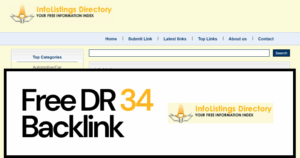Welcome to the ultimate guide on how to develop a content plan for SEO! In today’s digital landscape, creating high-quality, strategic content is essential for improving search engine rankings and driving organic traffic to your website. In this comprehensive overview, we will delve into the key elements of an effective content plan, explore strategies for development, and discuss execution, collaboration, and measurement of success. We will also cover how to adapt your content plan to algorithm updates, maintain long-term sustainability, and ensure continued relevance and quality. By the end of this guide, you will have a solid understanding of the importance of content planning, as well as the tools and techniques needed to create a content plan that not only boosts your SEO but also enhances the overall user experience. So, let’s dive in and learn how to take your content strategy to the next level!
Understanding the Importance of Content Planning
Developing a content plan is essential for any successful SEO strategy. It helps in organizing and prioritizing the creation and publication of content, ensuring that it aligns with the overall SEO goals. A well-developed content plan also helps in maintaining consistency and relevancy in the content produced, which is crucial for SEO success.
Content planning has a significant impact on SEO results. By strategically planning and scheduling content, businesses can ensure that they are consistently creating valuable and relevant content for their target audience. This, in turn, leads to improved search engine rankings and visibility, ultimately driving more organic traffic to the website.
In addition to benefiting SEO, content planning also enhances the overall user experience. When content is planned and organized effectively, it becomes more accessible and user-friendly. This not only improves user engagement and satisfaction but also signals to search engines that the website is providing valuable and relevant content, further boosting its SEO performance.
Key Elements of an Effective Content Plan
Identifying the target audience and relevant keywords is crucial for developing an effective content plan. By understanding who the content is intended for and what keywords they are using, you can tailor your content to meet their needs and improve its search engine optimization (SEO). This step ensures that your content is reaching the right people and is more likely to be discovered through organic search.
Setting clear content goals and objectives is essential for guiding the direction of your content plan. Whether your goal is to increase website traffic, generate leads, or improve brand awareness, having specific objectives in place will help you create content that aligns with your overall business strategy. It also provides a benchmark for measuring the success of your content plan and making adjustments as needed.
Creating a content calendar is an effective way to maintain consistency in your content strategy. By scheduling when and what type of content will be published, you can ensure that your audience receives a steady stream of valuable information. Consistency not only helps build trust with your audience but also signals to search engines that your website is regularly updated, which can positively impact your SEO efforts.
Strategies for Developing a Comprehensive Content Plan
Utilizing SEO tools for keyword research is an essential step in developing a comprehensive content plan. By conducting thorough keyword research, you can identify the most relevant and high-traffic keywords related to your industry or niche. This allows you to create content that is optimized for search engines, increasing the likelihood of your content being discovered by your target audience.
Implementing topic clusters for content organization is another effective strategy for developing a comprehensive content plan. Topic clusters involve creating a pillar page that covers a broad topic, and then creating multiple subtopic pages that delve deeper into specific aspects of the main topic. This not only helps to organize your content in a logical and user-friendly manner but also signals to search engines that your website is an authoritative source on the topic.
Incorporating long-tail keywords for niche targeting is also crucial in developing a comprehensive content plan. Long-tail keywords are longer, more specific phrases that are highly targeted to a particular audience. By including these in your content, you can attract highly qualified leads who are actively searching for the specific information or solutions that your content provides.
Content Plan Execution and Optimization
To ensure the success of a content plan, it is crucial to monitor and analyze the performance of the content. This involves tracking key metrics such as page views, engagement, and conversion rates. By understanding how the audience interacts with the content, adjustments can be made to improve its effectiveness. Analyzing the performance also provides valuable insights for iterating and updating the content plan to better align with the SEO strategy and audience preferences.
Iterating and updating the content plan is an ongoing process that involves refining the content strategy based on the insights gathered from performance analysis. This may include adjusting the types of content produced, the frequency of publication, and the channels used for distribution. By continuously iterating and updating the content plan, it becomes more tailored to the target audience and aligned with SEO best practices, ultimately leading to improved organic search visibility and audience engagement.
In executing the content plan, it is essential to leverage SEO best practices for content optimization. This includes incorporating relevant keywords, optimizing meta tags, and ensuring the content is structured for search engine readability. By integrating SEO best practices into the content plan, it becomes more discoverable by search engines, driving organic traffic and increasing the likelihood of achieving business goals.
Content Plan Collaboration and Management
Involving cross-functional teams in content creation is essential for a successful content plan. By bringing together individuals from various departments, such as marketing, sales, and product development, organizations can ensure that the content is well-rounded and aligns with the overall business goals. This collaboration also leads to a diversity of perspectives, resulting in more innovative and effective content.
Utilizing project management tools for collaboration can streamline the content creation process. Platforms like Asana, Trello, or Monday.com allow teams to assign tasks, set deadlines, and track progress in real-time. This not only helps in keeping everyone on the same page but also ensures that the content plan stays on schedule and meets the intended objectives.
Establishing clear communication channels for content plan alignment is crucial for effective management. Whether it’s through regular team meetings, email updates, or instant messaging platforms, having open and transparent communication ensures that everyone is aware of the content plan’s progress, challenges, and any necessary adjustments. This way, any potential roadblocks can be addressed promptly, and the content plan can stay on track for success.
Measuring the Success of a Content Plan
In order to measure the success of a content plan, it is essential to define key performance indicators (KPIs) for content performance evaluation. These KPIs could include metrics such as website traffic, user engagement, conversion rates, and SEO rankings. By establishing clear KPIs, you can effectively track and measure the impact of your content plan on the overall success of your seo strategy.
One of the most important ways to measure the success of a content plan is by tracking organic traffic and conversion rates. An increase in organic traffic and higher conversion rates can indicate that your content is resonating with your target audience and driving valuable actions. By analyzing these metrics, you can gain insights into which types of content are most effective in attracting and engaging users, as well as driving them towards conversion.
Additionally, assessing the impact of your content plan on SEO rankings is crucial for measuring success. By monitoring changes in your website’s search engine rankings for targeted keywords, you can determine whether your content plan is effectively improving your website’s visibility and authority in search results. This can help you refine your content strategy and make data-driven decisions to optimize your SEO performance.
Adapting Content Plan to Algorithm Updates
Staying informed about search engine algorithm changes is crucial for adapting the content plan. By keeping up to date with the latest updates, content creators can understand how the changes may affect their content strategy. This proactive approach allows for timely adjustments to be made in order to maintain or improve content performance in search engine results.
Adjusting the content strategy according to algorithm updates involves analyzing the specific changes and identifying how they could impact the visibility and ranking of content. For example, if an algorithm update prioritizes certain types of content or keywords, the content plan may need to be revised to align with these new requirements. By making strategic adjustments, content creators can ensure that their content remains relevant and valuable to both search engines and their target audience.
Mitigating the negative impact of algorithm changes on content performance is a key aspect of adapting the content plan. This may involve revisiting existing content to ensure it meets the updated criteria, as well as developing new content that aligns with the revised strategy. By actively addressing the challenges posed by algorithm updates, content creators can maintain a strong and competitive position in search engine results, ultimately driving organic traffic and engagement.
Content Plan Maintenance and Long-Term Sustainability
To maintain the long-term sustainability of a content plan, it is crucial to periodically refresh evergreen content. This involves updating and revising existing content to ensure its continued relevance and usefulness to the audience. By refreshing evergreen content, you can extend its lifespan and maintain its value over time, ultimately contributing to the overall effectiveness of your content plan.
In addition to refreshing existing content, implementing content recycling and repurposing strategies can also contribute to the long-term sustainability of a content plan. This involves finding new ways to present and utilize existing content, such as turning blog posts into infographics, videos, or social media posts. By repurposing content, you can reach new audiences and extend the lifespan of your content, maximizing its impact and value over time.
Finally, ensuring consistent quality and relevance in content creation is essential for the long-term sustainability of a content plan. This involves maintaining high standards for content creation, including thorough research, engaging writing, and strategic optimization for search engines. By consistently producing high-quality and relevant content, you can build credibility and trust with your audience, ultimately contributing to the long-term success of your content plan.
Are you tired of spending countless hours on manual content creation and SEO optimization? Say hello to Abun, the ultimate solution for content creators and marketers seeking to automate and optimize their web content for SEO. With Abun, you can streamline your workflow and generate high-quality, SEO-optimized content that drives organic traffic to your website. Say goodbye to the tedious, time-consuming tasks and sign up for early access to Abun now. Take the first step towards effortless, effective content creation and SEO optimization.
Frequently Asked Questions
1. What is a content plan for SEO?
A content plan for SEO is a strategic document that outlines the topics, keywords, and goals for creating and optimizing content to improve search engine rankings and drive organic traffic.
2. Why is a content plan important for SEO?
A content plan is important for SEO because it helps you stay organized, focus on relevant topics and keywords, and ensure consistent and high-quality content creation. It also helps in targeting specific audience segments and improving search engine visibility.
3. How do I develop a content plan for SEO?
To develop a content plan for SEO, you need to start by conducting keyword research to identify relevant and high-potential keywords. Then, create a content calendar to plan and schedule your content creation. Finally, analyze and optimize your content based on performance metrics and user feedback.
4. What should be included in a content plan for SEO?
A content plan for SEO should include a list of target keywords, topics for content creation, a content calendar, SEO guidelines for on-page optimization, and a strategy for promoting and distributing the content.
5. How often should I update my content plan for SEO?
It is recommended to regularly review and update your content plan for SEO to keep up with changing trends, search engine algorithms, and user preferences. Aim to review and update your plan at least once every quarter or whenever significant changes occur in your industry or target audience.
TL;DR: Developing a content plan for SEO is crucial for enhancing user experience, targeting the right audience, and achieving high rankings. Key elements include setting clear goals, utilizing SEO tools, and involving cross-functional teams. It’s important to measure success, adapt to algorithm updates, and maintain content quality for long-term sustainability.



